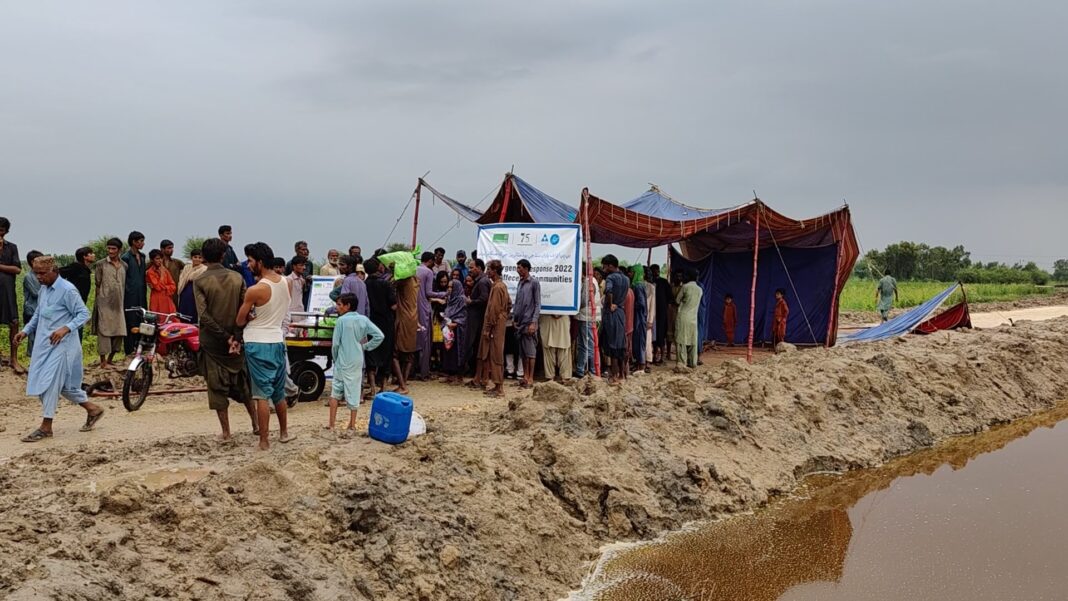By: Syed Shahid Kazmi

In a world marked by uncertainties, building resilience becomes paramount, especially in humanitarian efforts.
The concept of building resilience within communities is critical in the realm of humanitarian initiatives, particularly in a country as diverse and complex as Pakistan. The multifaceted challenges, including natural disasters, conflict-driven displacements, and socio-economic disparities, demand a holistic approach to addressing the needs of affected populations.
One of the primary considerations for humanitarian initiatives in Pakistan is the recognition of local dynamics and cultural nuances. Understanding the socio-cultural context of the communities is essential in designing interventions that are not only responsive but also respectful of local traditions and beliefs. Engaging with local leaders and community members to co-create solutions fosters ownership and sustainability, vital components of resilience-building.
Investing in education and skills development is another pivotal aspect of fostering resilience in humanitarian initiatives. By empowering individuals, especially women and youth, with the means to gain knowledge and build livelihoods, the cycle of vulnerability can be broken. This approach not only enhances the capabilities of communities to withstand crises but also contributes to their long-term self-sufficiency.
Furthermore, promoting inclusive governance and social cohesion is integral to ensuring the effectiveness and sustainability of humanitarian efforts. By facilitating platforms for local participation and decision-making, the sense of agency and unity among community members is reinforced, laying the groundwork for collective resilience in the face of adversities.
Additionally, it is crucial to address the impacts of climate change and environmental degradation in humanitarian initiatives. Pakistan faces various environmental challenges, and integrating climate resilience strategies into humanitarian projects can mitigate the risks faced by communities, making them more adaptable and better prepared for future shocks.
Equally important is the emphasis on mental health and psychosocial support within humanitarian interventions. The traumas and stresses experienced by individuals in crisis situations necessitate comprehensive mental health services to help them cope, recover, and rebuild their lives.
In conclusion, building resilience through a holistic approach is indispensable in shaping effective humanitarian initiatives in Pakistan. By acknowledging the diverse needs of communities, investing in education, promoting social inclusion, addressing environmental vulnerabilities, and prioritizing mental well-being, humanitarian efforts can truly make a lasting positive impact. It is through such comprehensive and people-centric strategies, enriched by collaboration with international NGOs, that the pursuit of resilience becomes not just a goal but a reality for all those involved in the humanitarian sphere.
The writer is Country Coordinator, Pakistan Humanitarian Forum (PHF)



